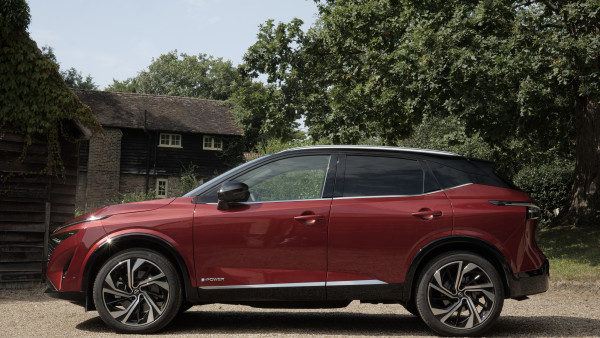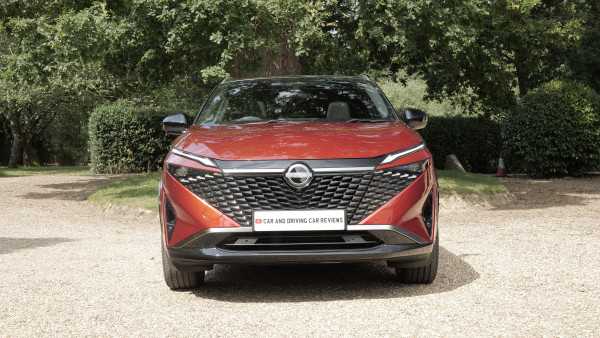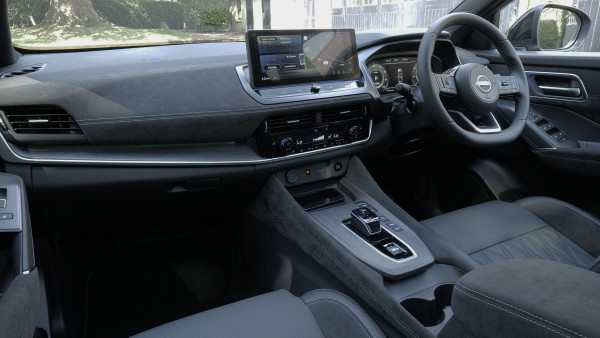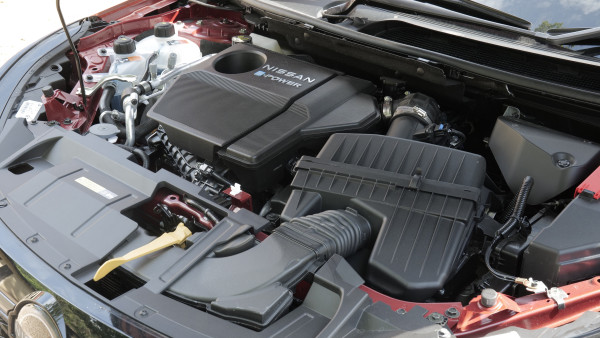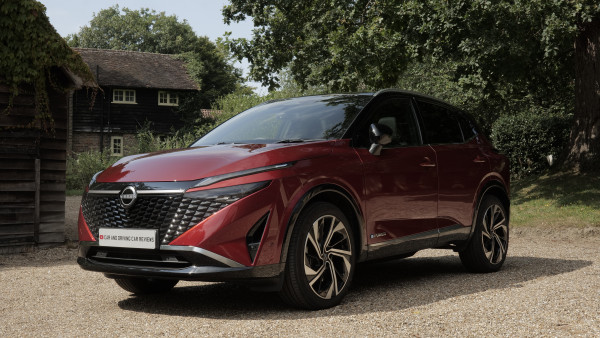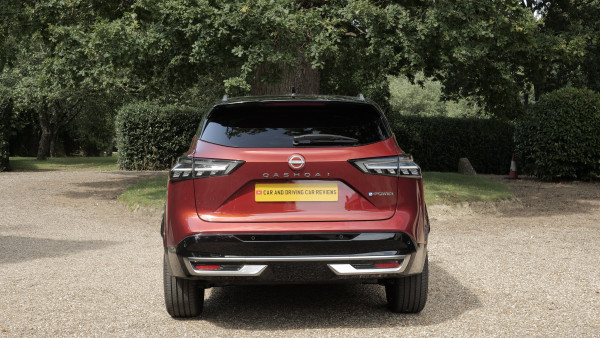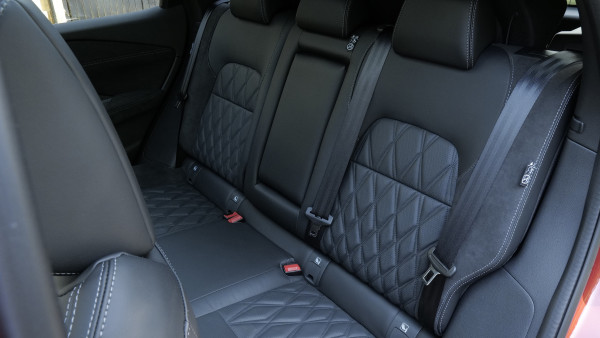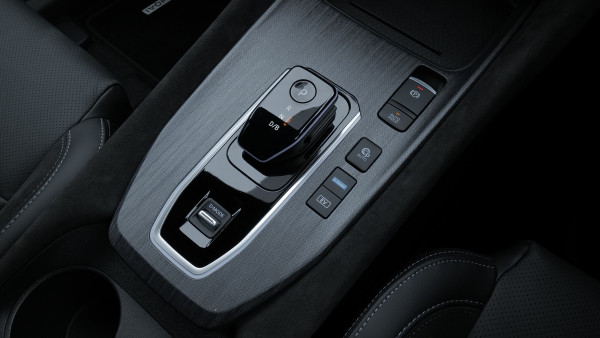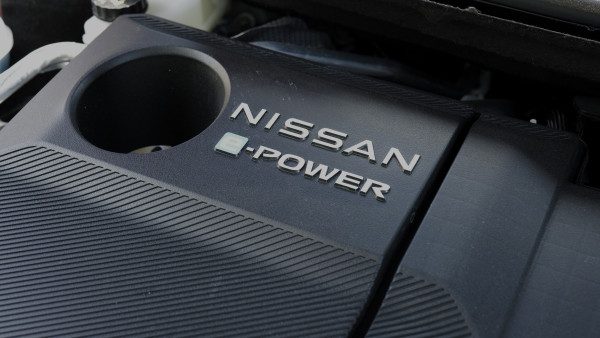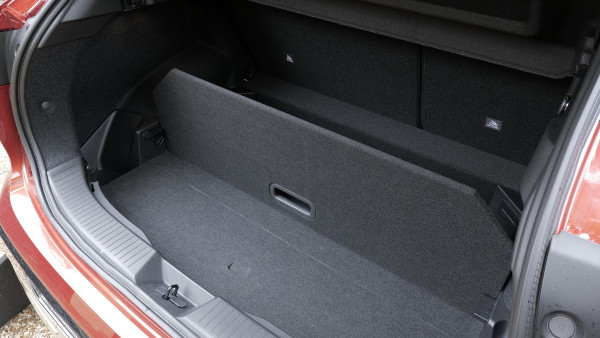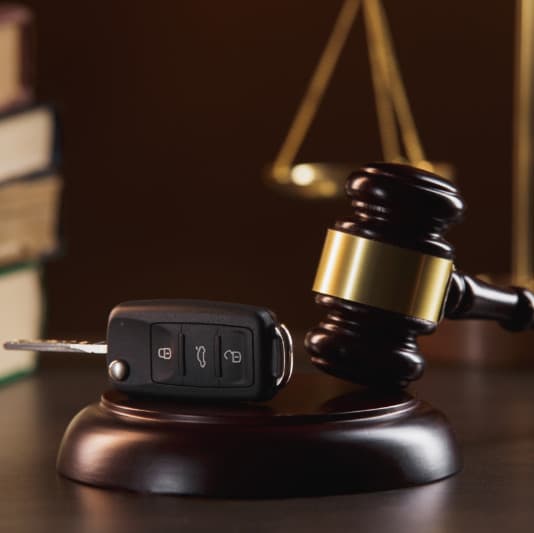The improved version of Nissan's third generation Qashqai remains the definitive, volume brand lower-mid-sized family SUV. Jonathan Crouch drives it.
Ten Second Review
The updated version of Nissan's third generation Qashqai makes a bit more of a style statement and gets much more sophisticated media tech. Added to the electrified engineering and practicality attributes of the original MK3 model, it makes for a super-strong lower mid-sized crossover contender.
Background
It's difficult to say when the Nissan brand would be without the Qashqai model line. This is the car that sustained the company through the last decade and, though much copied, continues to be the market's definitive lower mid-sized family crossover, the original J10 version first launched in 2006, then updated with a MK2 J11 model in 2013, with the current third generation J12 design introduced in 2021. It's also to some extent a British success story, assembled in Sunderland.
So why mess too greatly with a winning formula? Yet Nissan has. The car we look at here, announced in Spring 2024, isn't an all-new Qashqai but it looks like it, as fundamental a facelift as you'll ever see. The engineering and basic cabin architecture is carried over though; just repackaged for a new era. Let's take a closer look.
Driving Experience
Nissan hasn't made any engineering changes here: it didn't need to. The full-EV version (arriving shortly) is still to come but the existing combustion powertrains were already electrified in various ways. The most affordable models use a 1.3-litre 12V mild hybrid petrol engine (co-developed with Renault and Mercedes), which comes in DIGT140 or DIGT158 forms, the latter available with the option of a 4WD system. As usual with set-ups of this sort, a small lithium-ion battery gives a fraction more mid-range punch and takes care of engine stop/start duties. The 4WD set-up features five driving modes (Standard, ECO, Sport, Snow and Off-Road) and shifts power to the rear wheels as traction requires. Handling across the range is aided by the stiff CMF-C platform. As usual with a Qashqai, there's a choice of 6-speed manual or CVT Xtronic automatic transmission. Choose the AWD variant and you have to have the auto.
We should say a little about the alternative e-POWER hybrid engine too, a 1.5-litre petrol unit driving the front wheels and mated to a 140kW electric motor: the total power output is 190PS. Inevitably, it only works with auto transmission, but does so more smoothly than with the CVT autos used in some full-Hybrids thanks to a feature called 'linear tune' which ties engine speed to road speed. Nissan has also engineered in its 'i-Pedal' tech, which increases energy regeneration when you come off the throttle. This doesn't slow the car as much as it would with the company's LEAF and Ariya full-EVs, but it will mean that in normal motoring, you'll be using the brake pedal a lot less.
Design and Build
Facelifts are generally nip and tuck affairs: not this one. Nissan decided that this third generation Qashqai needed a completely new look to help it stand out in its crowded market. Hence the more aggressive front end and the larger grille with finishing apparently inspired by the ancient armour scales of Japanese Samurai helmets. The front bumper is different, the headlamps are new and there's a sharper daytime running light signature. Smarter wheels, new LED tail lamp clusters and a revised lower bumper complete the changes. The tail lights include small floating elements below larger boomerangs and feature sequential indicators for the first time.
It's a lot harder to change interior architecture than it is to alter a few exterior panels and, sure enough, the changes are a lot more subtle inside. If you owned the original version of this MK3 model, you'll notice the smarter dash and centre console finishes, plus the plush upholstery, which can be partly quilted and features Alcantara inserts further up the range.
The bigger change lies with the centre screen - which is now 12.3-inches in size. The computer that runs it is now several times more powerful, enabling a switch further up the range to Google's Android Operating System. With this, apps can be downloaded directly onto the car's entertainment software itself, rather than by hooking up to a smartphone with 'Apple CarPlay' or 'Android Auto' (which you can of course still also do). Other cabin changes include new graphics for the instrument screen, a better quality camera for the 'Around View Monitor' system and a 64-colour ambient lighting set-up.
Obviously, nothing's really changed with regard to the back seat and the boot. The rear seat can take two adults comfortably, but three would be a squash. The hatch reveals a wide and deep aperture, and the lip's sensibly low. Nissan redesigned the suspension of this MK3 Qashqai, giving a useful loadspace capacity of up to 504-litres with all seats in place, enough to take up to seven carry-on cases. It's worth pointing out though, that this figure falls as you ascend the range - the 'N-Connecta' and 'Tekna' versions many customers choose have only 479-litres and this top 'Tekna+' trim, hobbled by the need to accommodate an upgraded BOSE audio system, sees that figure fall to just 455-litres.
Market and Model
Prices start from around £30,000, which makes it look like they've risen quite a bit, but that's only because Nissan is no longer offering the poverty-spec entry-level 'Visia' version. The range now starts with 'Acenta Premium' trim, then, as before, rises through 'N-Connecta' and 'N Design' to 'Tekna' and on to 'Tekna+'. With a decent spec and the e-POWER engine, you're probably going to be paying in the £35,000-£40,000 bracket for this enhanced Qashqai - which takes this model line quite a way from its affordable roots.
To be fair, you do get quite a lot more technology for your money with this improved version of the third generation model. Take the included Nissan Connect app, which can now be had with features like live tracking of the car's location if it's stolen; and to prevent that from happening in the first place, it'll alert you if the car hasn't been locked. Upper-spec models also now get an improved version of Nissan's 'Around View Monitor' system; it now has a clever 3D function which allows the driver to monitor the car from eight different angles - the front, the rear, the sides and the corners, as well as from the top down.
As before, Xtronic auto models can be equipped with Nissan's 'ProPILOT' driver assistance technology. The system is able to accelerate and brake the vehicle within a single-lane on a highway, plus this set-up takes care of steering duties and can adapt to things like changing speed limits. 'ProPILOT' can communicate with the Qashqai's blind-spot radars to help intervene with a steering input correction to help prevent a lane-change manoeuvre if there is a vehicle in the blind-spot zone.
Cost of Ownership
We've remarked before that mild hybrid technology promises more than it ultimately delivers in terms of fuel frugality and CO2 benefits - and so it still is here. The figures produced by this third generation Qashqai's mild hybrid 12V 1.3-litre DIG-T petrol units are reasonable, but not exceptional - and certainly not as good as you'd get from the kind of proper Hybrid unit you could have in, say, a rival Vauxhall Grandland or Peugeot 3008. In WLTP terms, think 44.8mpg on the combined cycle and 141g/km of CO2 for both front-driven versions of the mild hybrid engine. It's 40.9mpg and 155g/km for the 4WD auto version. The mild hybrid system adds just 22kg to the overall vehicle mass. When decelerating, energy is recovered through regeneration and stored in the lithium-ion battery for use in acceleration or when the car is using its stop/start system.
Qashqai customers for whom efficiency is everything will be drawn to the e-POWER full-Hybrid model, which is of the self-charging (ie. Non-Plug-in) variety and manages up to 54.3mpg and 117g/km. This electrified unit differs from those of other Prius-like full-Hybrid powerplants in that the petrol engine is unconnected to the driven wheels and is instead used exclusively to power the electric motor. Nissan reckons this set-up can deliver better fuel economy and enhanced emissions, while also providing the instant acceleration of a pure electric car. The Qashqai e-POWER, like Nissan's LEAF full-EV, also offers an 'e-Pedal' which can be used for both acceleration and deceleration. Plus this model can drive for small distances (under two miles) with the engine off. Insurance groups are in the 12-26 bracket.
Summary
This improved version of the third generation Qashqai feels like a new model - and in many ways it is. It's not just the reinvigorated looks. The media hub of the car, its centre screen, now offers infotainment at a completely different level, so this Nissan will integrate into your family life so much better.
True, the cabin quality still isn't a match for premium brand rivals. But you're not (quite) paying premium brand prices. And the sharp handling will please, plus there's as much practicality as you really need. In short, the class leader has just upped its game. The changes made here are more than you'd expect from a facelift, but everything you'd expect from a segment champion.
